New concept of beneficial ownership of enterprises
For the first time, the concept of "beneficial owner of an enterprise" is mentioned in the draft Law on Enterprises (amended) which is being discussed by the National Assembly and is expected to be approved at the 9th Session.
Clause 1, Article 31 of the draft law stipulates the addition of beneficial owner information to the business registration dossier, public disclosure of beneficial owner information and the responsibility of the enterprise to notify the Business Registration Authority when there is a change in beneficial owner information.
The drafting committee added provisions on beneficial ownership to the draft law this time because the Asia- Pacific Group on Money Laundering (APG), of which Vietnam is a member, assessed that Vietnam needs to overcome some shortcomings to ensure the effectiveness of the anti-money laundering mechanism.
Among them, Vietnam is lacking regulations to ensure information on beneficial owners of enterprises is available.
Discussing in groups at the National Assembly on the afternoon of May 10, Finance Minister Nguyen Van Thang said there are two main reasons for amending the Enterprise Law. One is to address problems and shortcomings, ensuring the implementation of commitments to prevent and combat money laundering. Two is to reduce administrative procedures, reducing inconvenience for businesses.
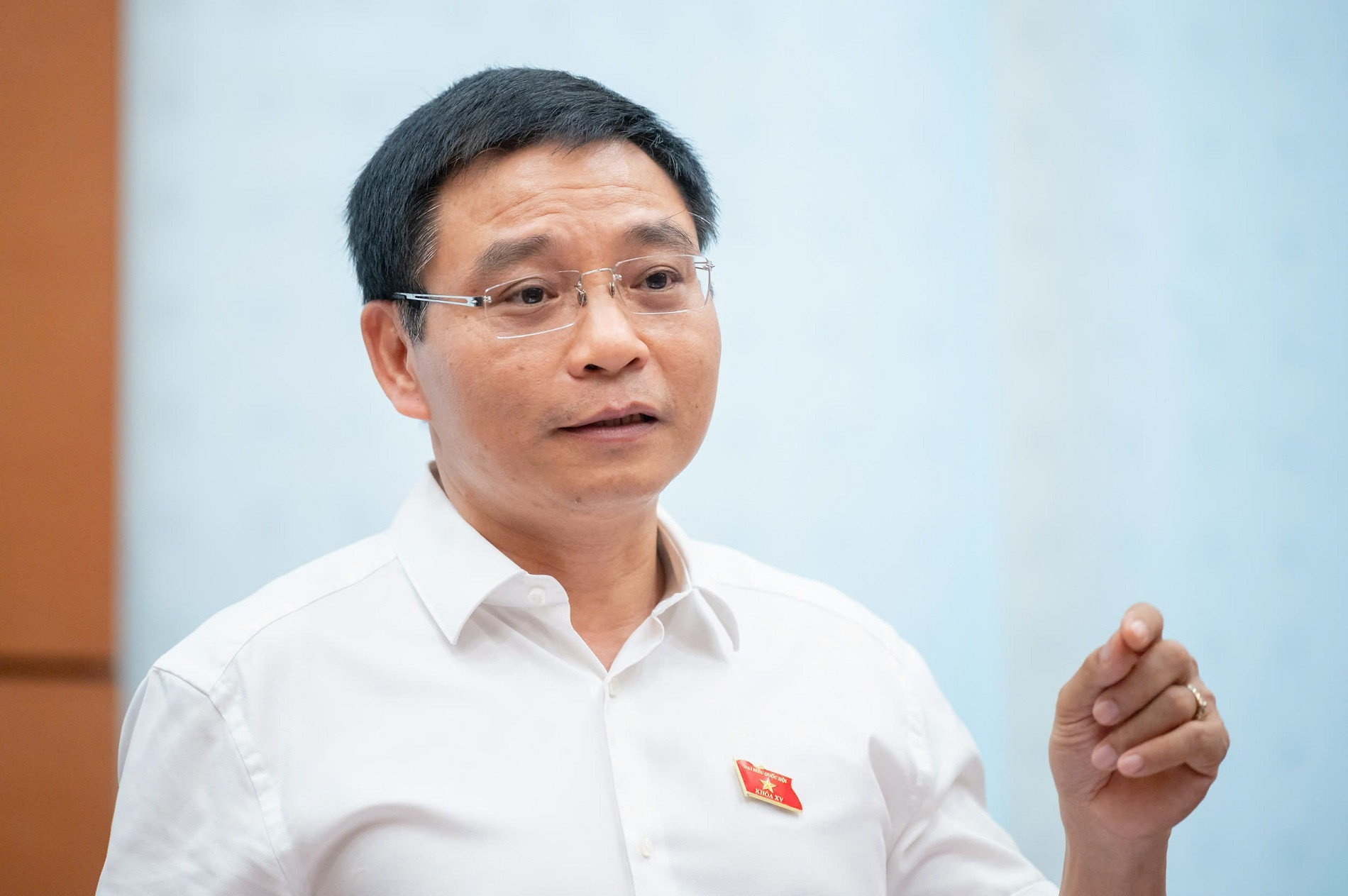
Minister of Finance Nguyen Van Thang. Photo: Pham Thang.
Of the 23 amendments to the draft law (16 amendments and 7 new additions), one-third are related to regulations on anti-money laundering.
“This is a very urgent issue that the drafting agency must include in the draft to promptly meet the requirements of the Financial Action Task Force (FATF). This May is the deadline for Vietnam to meet the requirements of the FATF before being blacklisted,” said Minister Nguyen Van Thang.
Regarding the concept of “beneficial owner”, Minister Thang said: “During the drafting process, there were opinions questioning why no other concept was used for easier understanding. However, this is impossible because the term ‘beneficial owner’ is a verbatim quote from FATF, this is a technical issue”.
Previously, the review report of the National Assembly's Economic and Financial Committee proposed not to specify the concept of "beneficial owner" in the Enterprise Law but only to provide general and principled regulations and assign the Government to specify the criteria for determining the beneficial owner of an enterprise, which should be similar to the provisions of the Law on Anti-Money Laundering on "beneficial owner of an organization's customer".
According to Mr. Nguyen Manh Hung, member of the National Assembly's Economic and Financial Committee, the Law on Anti-Money Laundering does not mention the concept of "beneficial owner", but Clause 2, Article 10 stipulates information on customer identification, requiring banks to report, identify beneficial owners and apply measures to identify and update information about beneficial owners.
New law will create a launching pad for businesses
Recently, the Politburo, the General Secretary and the Prime Minister have given strong direction on reducing administrative procedures for each ministry and branch, aiming to reduce at least 30% of administrative procedures. According to the Minister of Finance, the amendment of the Enterprise Law also aims to serve this goal.
Minister Thang gave examples of market entry procedures stipulated in the draft law, aiming to reduce administrative procedures for businesses.

The Law on Enterprises (amended) will contribute to removing many barriers for businesses.
Besides, management based on personal identification instead of through traditional documents as before is also a reason to amend the law to suit reality.
Another content related to the Law on Science and Technology was also considered by the National Assembly at this session. That is the regulation that civil servants are allowed to participate in contributing capital to establish enterprises.
According to Mr. Thang, there are two options to solve this problem. Option 1 is to amend Clause 2 and Clause 3, Article 17 of the Enterprise Law to supplement it in accordance with the Law on Science and Technology.
Option two is to wait for the National Assembly to approve the draft amendments and supplements to the Law on Civil Servants at the session next October.
“We are leaning towards the option of including the regulation on 'public employees being allowed to contribute capital to establish enterprises' in the Enterprise Law at this session to ensure consistency between the two laws. If we do not amend it now, when it is included in the Law on Public Employees, we will have to continue amending the Enterprise Law,” said Minister Thang.
According to Mr. Nguyen Manh Hung, a series of resolutions issued by the Central Committee are aimed at finding ways to remove barriers and create momentum for business development.
Most recently, we set a target of 2 million businesses by 2030, although there are currently only 940,000 businesses. To achieve this target, from now until 2030, Vietnam must have more than 200,000 more businesses each year.
However, the Central Committee is proposing a "strategic quartet" consisting of four resolutions. In addition to Resolution 57 on Science and Technology Development - Innovation, there is also Resolution 59 on international integration, Resolution 66 on innovation in law-making and enforcement, and Resolution 68 on private economic development.
Mr. Hung recommended that it is necessary to thoroughly study all four resolutions to integrate them into the Enterprise Law, thereby institutionalizing the resolutions, which is also the basis for achieving the goal of 2 million enterprises by 2030.
Vietnamnet.vn
Source: https://vietnamnet.vn/bo-truong-tai-chinh-noi-ve-cum-tu-lan-dau-tien-xuat-hien-de-chong-rua-tien-2399823.html










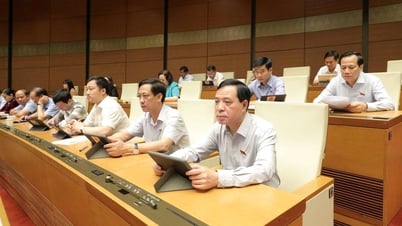

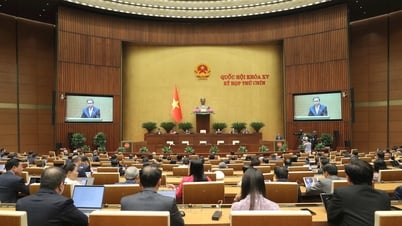
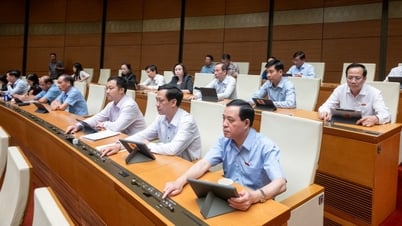


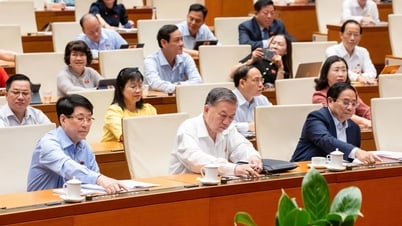
































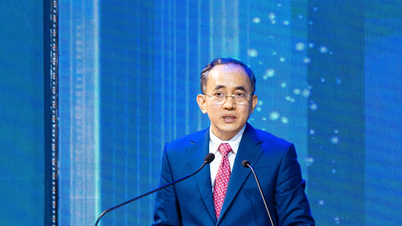








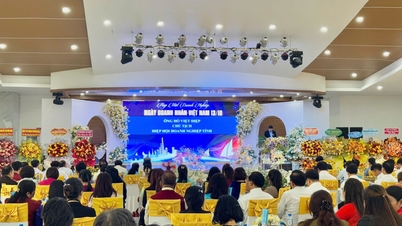




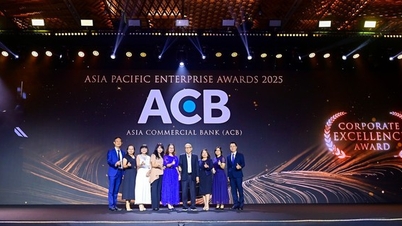









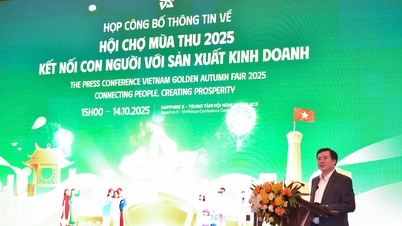

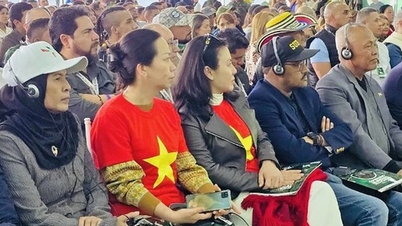


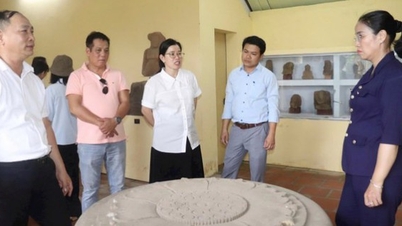


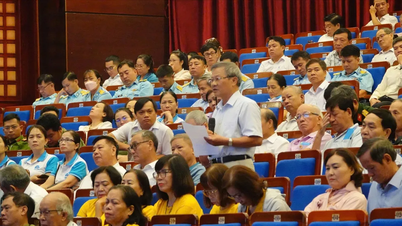

























Comment (0)